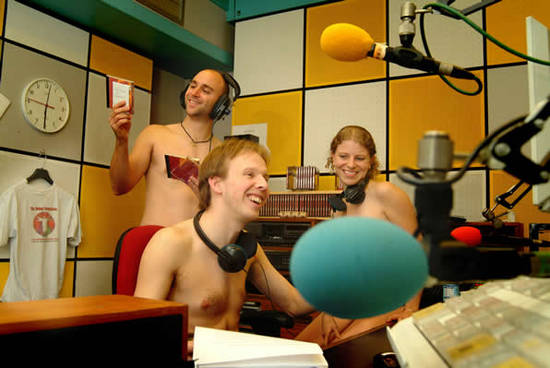Ben Valsler, one of the team, visited ISIS earlier this year for the first time, and recorded the day in a podcast. He met with Martyn Bull who gave him a tour of the target stations and explained how the neutrons are generated and their role in helping to understand the world. Through describing the instruments as a ‘little village of experiments’ surrounding the big bunker target, Martyn emphasised the breadth of scientific research that takes place at ISIS.
Ben then chatted to Chris Frost about hardening electronics against neutron rain by design, pointing out the negatives that can come with neutrons in the atmosphere. Chris explained how cosmic rays which hit the top of the atmosphere generate a gentle rain of neutrons by the time they reach our level, which can be detrimental to electronic systems.
The neutron source at ISIS is being used to mimic the atmospheric spectrum of neutrons in a commercial way, and is able to accelerate build up of damage over, say 100 years, in only an hour of beam time. From accelerated testing, researchers can work out how susceptible an electronic device is to neutron damage and ways in which the faults can be corrected to make them safe. As a result, industries that produce electronic devices have been coming to ISIS to protect their products from neutron rain through hardening by design.
The trip was rounded up with a discussion with Anton Le Brun and Stephen Holt (Bragg Institute, ANSTO), and Luke Clifton from ISIS to find out how ISIS contributes to the study of biological systems. The topic was a toxin called colicin N which is produced by E. coli to kill competing E. coli cells during stress from lack of nutrients.
The aim was to uncover how this natural antibiotic, colicin N, penetrates the double membrane in E. coli with hope of manipulating this process to make better anti-microbial agents in the future. ISIS provides detail of what each individual component is doing, at the molecular level. This enables Anton, Stephen and Luke to see how colicin N gets through the double-membrane barrier of E. coli via its own specific transport route, which if understood, can perhaps be a way for us to attack bacterial cells in the future.
The podcast also contains some interesting discussions surrounding topics such as health, sustainable fish farming, cartilage transplant development and zebra finch genetics and ageing. In addition, Ben talks with ISIS user Professor Martin Dove (Queen Mary University, London) about his time at ISIS which was spent probing the properties of materials.

Their award winning BBC weekly radio programme, The Naked Scientists, reaches a potential audience of 6 million listeners across the east of England, and also has an international following on the web. Tune in on a Sunday evening to hear creator Dr. Chris Smith, together with his entertaining sidekicks, interview renowned scientists and researchers from all over the world.
View full-size image
Emily Mobley
